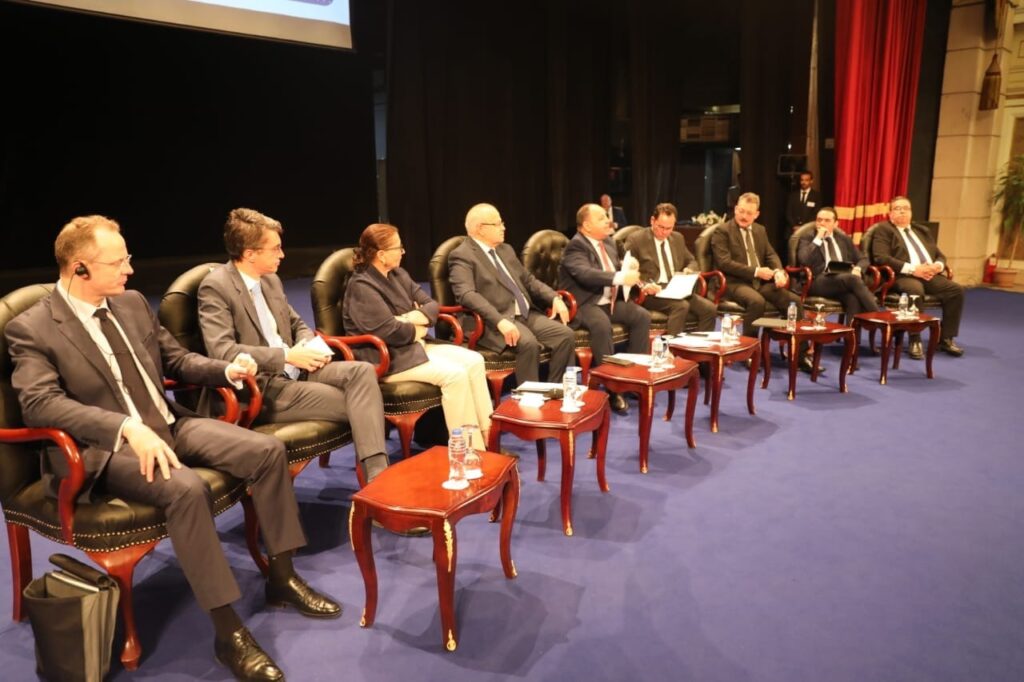Finance Minister Mohamed Maait has announced the start of a remedial phase in Egypt’s economy, in response to the significant challenges faced domestically and internationally. The aim of this initiative is to reduce potential risks, especially in light of the ongoing conflicts in Ukraine and Gaza, as well as the broader instability in the Middle East, including tensions in the Red Sea region.
Speaking at a seminar entitled “Policy Making in Times of Increased Risk and Uncertainty,” Maait outlined the government’s strategy for managing public finances during these tumultuous times. He emphasized the need for flexible, balanced, and coherent policies, with a particular emphasis on bolstering the private sector to drive sustainable economic growth in Egypt.
The seminar, held as part of the annual scientific conference organized by the Cabinet’s Information and Decision Support Center (IDSC) in partnership with Cairo University’s Faculty of Economics and Political Science, featured Maait’s address. Attendees included Cairo University President Mohamed Elkhosht, Assistant to the Prime Minister Osama El-Gohary, as well as experts, academics, and representatives from executive bodies, the private sector, and international organizations.
Maait expressed concerns about the economic slowdown, decreased trade, and the impact of restrictive policies aimed at controlling inflation, which have negatively impacted both tax and non-tax revenues. He predicted a significant decrease in Suez Canal revenues, around 60%, due to tensions in the Red Sea, leading to increased government spending. The state’s financial burdens have been exacerbated by rising financing costs, driven by higher interest rates and currency fluctuations.
The minister also highlighted the inflationary pressures resulting from global and regional crises, which have led to an estimated $4 billion increase in the monthly import bill. He emphasized the significant rise in spending on petroleum resources, reaching approximately EGP 200 billion, due to global price hikes, shipping costs, and exchange rate fluctuations.
Despite these challenges, Maait assured that the government remains committed to covering essential expenses such as salaries, pensions, subsidies, development projects, healthcare, education, and meeting the needs of citizens, even amidst extraordinary global and local economic conditions.
In conclusion, Maait emphasized the government’s efforts to strengthen the agriculture, industry, and information technology sectors, stimulate production and exports, and implement initiatives to create a favorable business environment. The state is dedicated to attracting more investment and has allocated EGP 120 billion in financing facilities to support productive activities.
